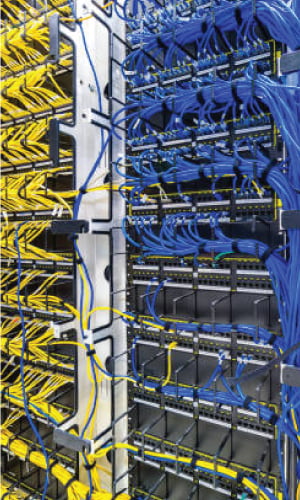Table of Contents
Introduction
Computer networks have revolutionized how we communicate, share information, and work. Their influence can be seen in every aspect of modern life, from how businesses operate to how we socialize and learn. The advent of the “Internet of Things” (IoT) promises to connect an estimated 30 billion devices by 2025, offering virtually limitless possibilities. However, like any technological advancement, computer networks come with their own set of advantages and disadvantages. This article explores these pros and cons, offering a comprehensive understanding of computer networks.
Understanding Computer Networks
Before delving into the advantages and disadvantages, it’s vital to define what a computer network is. A computer network is a digital infrastructure that links numerous computing devices, enabling them to communicate, exchange information, and share resources. These networks can range from small local area networks (LANs) in a home or office to expansive wide area networks (WANs) across countries or continents.
Delving into the Advantages of Computer Networks
Computer networks have many benefits that significantly increase efficiency, improve communication, and facilitate resource sharing. Let’s explore some of the key advantages.
Centralized Data and Resource Sharing
One of the most significant advantages of computer networks is the ability to share resources and data centrally. Networks enable multiple devices to access the same database, increasing storage capacity and ensuring data consistency. Hardware resources, such as printers and scanners, can be shared, reducing costs and enhancing productivity.
Enhanced Communication
Computer networks provide excellent platforms for communication. They enable faster data exchange and offer various communication channels, including emails, instant messaging, and video conferencing. This enhanced communication capability is particularly beneficial in business environments, fostering collaboration and information sharing.
Improved Accessibility and Flexibility
Computer networks offer improved accessibility, allowing users to access data and applications from any workstation on the network, irrespective of the physical location of the resource. This flexibility is especially crucial in today’s globalized world, where teams work from different places.
Cost-Efficiency
By allowing shared use of the right network hardware, software, and data resources, computer networks can lead to significant cost savings. They eliminate the need for each device to have its dedicated resources, leading to a more efficient and cost-effective use of resources.
Disadvantages of Computer Networks
While computer networks offer numerous benefits, they have challenges. Here are some of the critical disadvantages that need to be considered.
Security Concerns
One of the most critical disadvantages of computer networks is the constant risk of unauthorized access and data breaches. As networks are often open to multiple users, they are vulnerable to various security threats, including viruses, hacking, and data theft. Therefore, robust security measures, such as firewalls and encryption, are necessary to prevent such breaches.
High Setup and Maintenance Costs
Setting up a computer network can be expensive. The initial costs involve purchasing the necessary hardware, such as servers, routers, and cabling, and the cost of professional services for network setup. Besides, networks require regular maintenance and management, adding to the overall operational cost.
Dependence on Servers
In a computer network, especially in a client-server model, all devices depend heavily on the central server. If the server goes down, it can disrupt the entire network operation, leading to significant downtime.
Limited Resources
While computer networks facilitate resource sharing, they also have limited resources. If too many people are on the network at once, it can lead to network congestion, slowing down the system.
The Importance of Network Security
Network security is paramount in light of the potential threats and disadvantages. It involves implementing measures and practices to protect the network and its resources from unauthorized access, misuse, and damage. With the surge in data breaches and cyber threats, network security has become a significant concern for organizations and individuals.
The Future of Computer Networks with IoT
The “Internet of Things” (IoT), a network of connected smart devices, promises a future where everything from our fridges to our thermostats is interconnected. This network relies on secure computer networks, offering vast advantages from remote appliance control to automated farming. However, robust network security is crucial to safeguard these systems and protect the valuable data they generate.
Conclusion:
Computer networks have undeniably transformed our world, offering numerous advantages that improve efficiency, enhance communication, and facilitate resource sharing. However, they also present challenges, particularly regarding security and cost. Therefore, when considering the implementation of a computer network, it’s crucial to weigh these advantages and disadvantages carefully.














